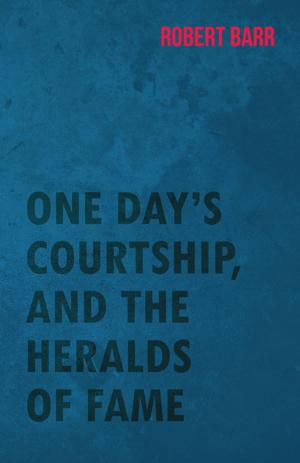| Author: | Ashley Montagu | ISBN: | 9781447495208 |
| Publisher: | Read Books Ltd. | Publication: | November 29, 2011 |
| Imprint: | Whitley Press | Language: | English |
| Author: | Ashley Montagu |
| ISBN: | 9781447495208 |
| Publisher: | Read Books Ltd. |
| Publication: | November 29, 2011 |
| Imprint: | Whitley Press |
| Language: | English |
DR. ASHLEY MONTAGU’S book possesses two great merits rarely found in current discussions of human problems. Where most writers over-simplify, he insists on the principle of multiple and interlocking causation. And where most assume that “facts will speak for themselves,” he makes it clear that facts are mere ventriloquists’ dummies, and can be made to justify any course of action that appeals to the socially conditioned passions of the individuals concerned. These two truths are sufficiently obvious; but they are seldom recognized, for the good reason that they are very depressing. To recognize the first truth is to recognize the fact that there are no panaceas and that therefore most of the golden promises made by political reformers and revolutionaries are illusory. And to recognize the truth that facts do not speak for themselves, but only as man’s socially conditioned passions dictate, is to recognize that our current educational processes can do very little to ameliorate the state of the world. In the language of traditional theology (so much more realistic, in many respects, than the “liberal” philosophies which replaced it), most ignorance is voluntary and depends upon acts of the conscious or subconscious will. Thus, the fallacies underlying the propaganda of racial hatred are not recognized because, as Dr. Montagu points out, most people have a desire to act aggressively, and the members of other ethnic groups are convenient victims, whom one may attack with a good conscience. This desire to act aggressively has its origins in the largely unavoidable frustrations imposed upon the individual by the processes of early education and later adjustments to the social environment. Dr. Montagu might have added that aggressiveness pays a higher dividend in emotional satisfaction than does coöperation. Coöperation may produce a mild emotional glow; but the indulgence of aggressivness can be the equivalent of a drinking bout or sexual orgy. In our industrial societies, the goodness of life is measured in terms of the number and intensity of the excitements experienced. (Popular philosophy is moulded by, and finds expression in, the advertising pages of popular magazines. Significantly enough, the word that occurs more frequently in those pages than any other is “thrill.”) Like sex and alcohol, aggressiveness can give enormous thrills. Under existing social conditions, it is therefore easy to represent aggressiveness as good. Concerning the remedies for the social diseases he has so penetratingly diagnosed, Dr. Montagu says very little, except that they will have to consist in some process of education. But what process? It is to be hoped that he will answer this question at length in another work. ALDOUS HUXLEY
DR. ASHLEY MONTAGU’S book possesses two great merits rarely found in current discussions of human problems. Where most writers over-simplify, he insists on the principle of multiple and interlocking causation. And where most assume that “facts will speak for themselves,” he makes it clear that facts are mere ventriloquists’ dummies, and can be made to justify any course of action that appeals to the socially conditioned passions of the individuals concerned. These two truths are sufficiently obvious; but they are seldom recognized, for the good reason that they are very depressing. To recognize the first truth is to recognize the fact that there are no panaceas and that therefore most of the golden promises made by political reformers and revolutionaries are illusory. And to recognize the truth that facts do not speak for themselves, but only as man’s socially conditioned passions dictate, is to recognize that our current educational processes can do very little to ameliorate the state of the world. In the language of traditional theology (so much more realistic, in many respects, than the “liberal” philosophies which replaced it), most ignorance is voluntary and depends upon acts of the conscious or subconscious will. Thus, the fallacies underlying the propaganda of racial hatred are not recognized because, as Dr. Montagu points out, most people have a desire to act aggressively, and the members of other ethnic groups are convenient victims, whom one may attack with a good conscience. This desire to act aggressively has its origins in the largely unavoidable frustrations imposed upon the individual by the processes of early education and later adjustments to the social environment. Dr. Montagu might have added that aggressiveness pays a higher dividend in emotional satisfaction than does coöperation. Coöperation may produce a mild emotional glow; but the indulgence of aggressivness can be the equivalent of a drinking bout or sexual orgy. In our industrial societies, the goodness of life is measured in terms of the number and intensity of the excitements experienced. (Popular philosophy is moulded by, and finds expression in, the advertising pages of popular magazines. Significantly enough, the word that occurs more frequently in those pages than any other is “thrill.”) Like sex and alcohol, aggressiveness can give enormous thrills. Under existing social conditions, it is therefore easy to represent aggressiveness as good. Concerning the remedies for the social diseases he has so penetratingly diagnosed, Dr. Montagu says very little, except that they will have to consist in some process of education. But what process? It is to be hoped that he will answer this question at length in another work. ALDOUS HUXLEY















